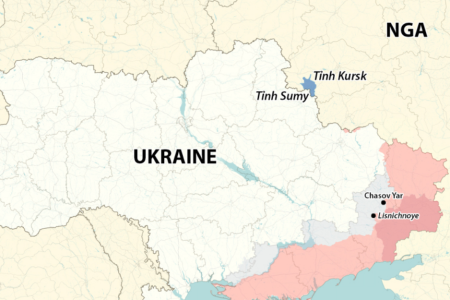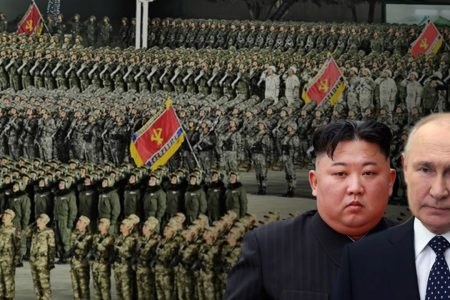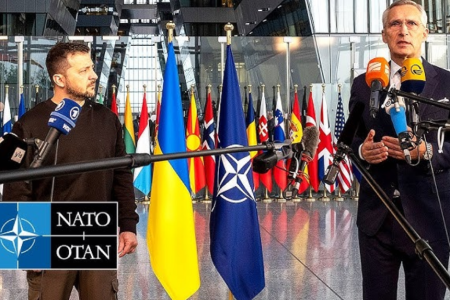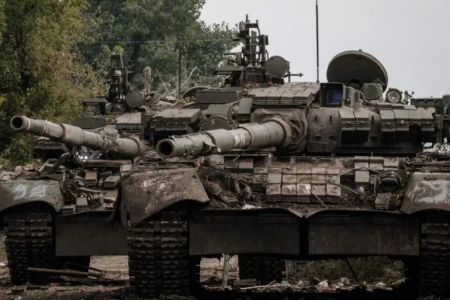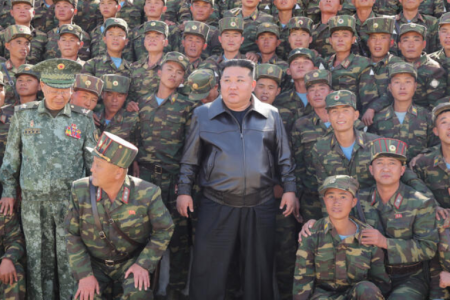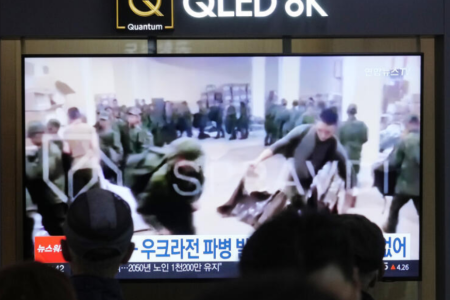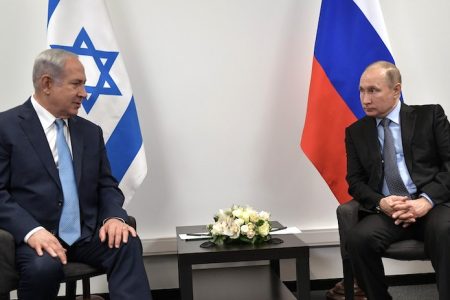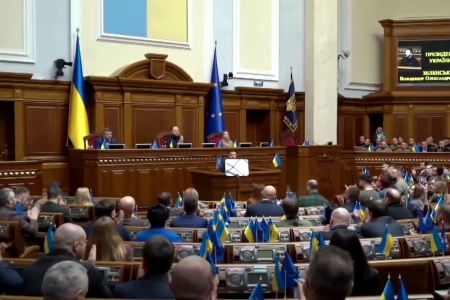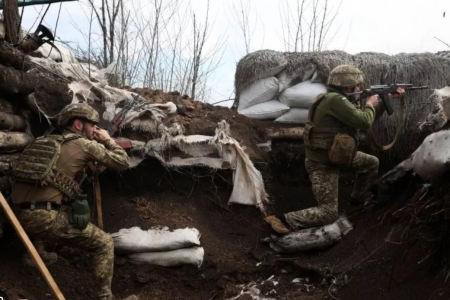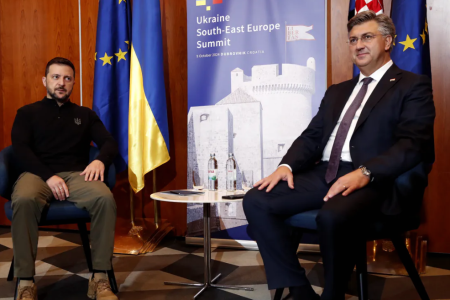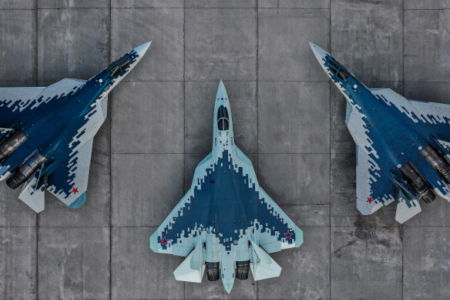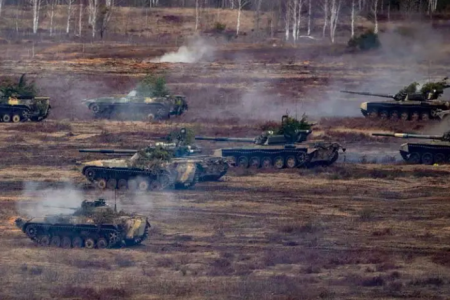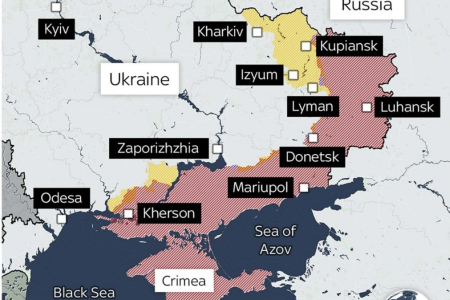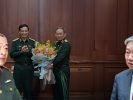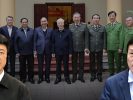
Australia’s cancellation of a $40 billion contract to buy French conventional submarines in favor of a deal to build at least eight nuclear-powered submarines with the US and UK following the announcement of a partnership Trilateral security over the weekend is causing “turbulence” in the relations of Western allies.
The French side was furious, saying Australia had “made a huge diplomatic mistake” and that the cancellation of the contract reached in 2016 was a “stab in the back” of its allies. It also canceled diplomatic events in Washington and immediately recalled its ambassadors from Washington and Canberra.
Meanwhile, Prime Minister Morrison defended Australia’s decision on the grounds of “national interest” and confirmed that he had informed France of the possibility of canceling this “contract of the century” since June 2021.
Amid the tension between the Western Allied Powers showing no signs of being resolved, VOA’s Khanh An conducted an interview with Professor Carl Thayer of the Australian Defense Academy, University of New South Wales, to learn about the effects and implications of this event on security issues and the balance of power in the South China Sea (Vietnam calls it the East Sea), as well as Vietnam’s role in the strategy of the newly established security relationship AUKUS.
VOA: Professor, in the latest tension between Western allies, France, in particular, Foreign Minister Jean-Yves Le Drian, has condemned Australia’s cancellation of the contract buying submarines from France and he said Australia’s new submarine deal with the US and UK was a “stab in the back” of its allies. As a researcher of international relations issues and an Australian citizen, how do you evaluate this event?
Prof. Carl Thayer: Over the past nine years, Australia and France have developed a defense-security relationship. In 2012, the two sides adopted the Joint Statement on Strategic Partnership. In 2016, France and Australia signed an agreement for France to build conventional submarines for Australia.
After Emmanuel Macron was elected president of France, he spent a lot of time and effort building this foundation. France and Australia published a Joint Statement on an Enhanced Strategic Partnership in 2017 aimed at enhancing their engagement in the Indo-Pacific, prioritizing benefits for key relationships in governance, defense, security and intelligence. In 2018, the two countries adopted the Vision Statement on the Australia-France Relations.
The submarine deal with the French Navy Corporation was a dilemma in terms of implementation costs and length of time. No doubt Prime Minister Scott Morrison mentioned these difficulties to President Macron when they met in person this year, but Mr. Morrison did not tell Mr. Macron that because of the rapidly changing strategic circumstances that French submarines will be replaced by American-designed nuclear-powered submarines.
President Macron was never told about the months-long negotiations between Australia, the US and Britain. Mr. Macron only learned about the AUKUS partnership the night before it was announced. Of course Mr. Macron and France feel betrayed by Mr. Morrison’s poor handling of this case. This raises questions about the efforts made over the past nine years in France and Australia to work as strategic partners to ensure a peaceful and stable Indo-Pacific.
VOA: France says it is in a “crisis” with Australia and the United States after tens of billions of dollars worth of submarine contracts were cancelled. While France is also one of the parties involved in the West’s efforts to curb China’s aggressive and assertive behavior in the South China Sea, according to the professor, will the crisis have any effect on the Western efforts or not? And does it raise any security concerns or risks in the South China Sea?
Prof. Carl Thayer: The formation of the AUKUS tripartite security partnership is an important strategic development that will bind Australia to the United States for decades to come. But other equally important developments are taking place besides the transfer of nuclear technology. The Quartet is about to hold its first face-to-face meeting to map out a strategy to counter China’s rise in the Indo-Pacific. Australia alone has strengthened bilateral defense ties with Japan, India, Indonesia and South Korea.
The US defense footprint in Australia will grow stronger with increased rotational deployments of US Marines, and the garrison of US warships and military aircraft in different Australian military bases. Australia will gain a long-range missile strike capability before its nuclear-powered submarines are deployed.
France’s strategic interests in defending its territories in the Indian Ocean and South Pacific will remain unchanged, as France’s interest in keeping the waterways in the South China Sea safe will remain. Time will tell if France decides to go it alone. This will only slightly affect the balance in the South China Sea, where the US, Japan and Australia will play a larger role.
VOA: Yes. So, will the crisis among the Western allies benefit China?
Prof. Carl Thayer: China can derive some short-term political benefit from this crisis in Europe. But China must now confront the reality that modernizing its military will face an even more formidable challenge in the South China Sea, not only now but in the decades to come as Australia get 8 nuclear powered submarines.
VOA: It is suggested that the United States will achieve three goals if it acquires the French Shortfin Barracuda submarines and then transfers them to Vietnam. The goals to be achieved include: The Biden administration will repair its relationship with America’s oldest ally, France. Second, provide a rising security partner with powerful new means to challenge Chinese expansionism. Third, this action will test President Emmanuel Macron’s commitment to international security in the South China Sea. What does the professor comment on this idea? Could this be a viable option to resolve the current crisis among Western allies?
Prof. Carl Thayer: This proposal is just a drawing cake. Vietnam owns 6 conventional submarines Varshavyanka (Kilo class) manufactured by Russia. Vietnam is completely dependent on Russia and a number of countries that are familiar with Russian military technology (such as India, Belarus, Ukraine) for their navy, including submarine fleets. It would be a cost nightmare to integrate French technology into Vietnam’s current force structure.
It is not clear whether Vietnam can afford to integrate French submarines into its naval fleet. It is also unclear whether Vietnam will actually develop a submarine fleet program to complement its maritime strategy. Besides, the addition of French Shortfin Barracuda submarines will not change the balance of maritime power in the South China Sea.
There are four other factors that need to be taken into account.
First, Vietnam has slowed down significantly in its acquisition of major defense vehicles in recent years due to current upkeep and maintenance costs. The acquisition of the Shortfin Barracudas submarines will only aggravate the situation.
Second, Vietnam has long had a defense policy of “three nos” and was expanded to “four nos” by the end of 2019. That is: no military alliances, no foreign military bases, no ally with a country against a third country and without the use of force first. Therefore, Vietnam cannot be bribed to join the United States against China.
Third, despite the East Sea dispute, bilateral relations between Vietnam and China are still progressing quite well.
Fourth, the issue is whether current US law and/or the US Congress allows such an arrangement to happen.
VOA: Yes, professor, speaking of AUKUS, will this newly formed trilateral security partnership benefit ASEAN countries that are claimants to sovereignty in the South China Sea? Is Vietnam one of the key countries in the strategy of the newly formed relationship between Australia, the US and the UK?
Prof. Carl Thayer: ASEAN countries, including Singapore, don’t want to be forced to choose sides. But most view the continued presence of the United States as providing balance and stability in constraining Chinese behavior. The combination of the Quartet plus AUKUS will determine the future balance of power in the region. This gives the ASEAN claimants time to recover from the COVID-19 pandemic and develop their economies. However, it should be made clear that counterbalancing China’s military modernization is not the same as resolving territorial disputes in the South China Sea.
Vietnam alone will play an important role as an emerging mediator. Vietnam will seek to strengthen its autonomy in independent actions and avoid leaning towards the United States or China. However, Vietnam has also added a warning in the “four nos.” Vietnam’s 2019 Defense White Paper added that, “Depending on specific circumstances and conditions, Vietnam will consider developing necessary and appropriate defense and military relations with other countries…”
VOA: Yes. Thank you, Professor Carl Thayer, for your time at VOA.
Thoibao.de (Translated)



